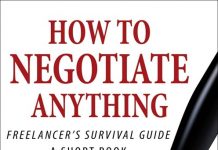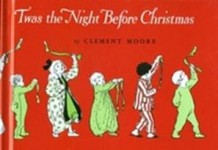 Two articles came my way this morning on the subject of subscription services—one on Next Issue, an all-you-can-read magazine service, and the other on Scholastic’s decision to close their eBook ‘store’ and replace it with a subscription-based web service.
Two articles came my way this morning on the subject of subscription services—one on Next Issue, an all-you-can-read magazine service, and the other on Scholastic’s decision to close their eBook ‘store’ and replace it with a subscription-based web service.
Neither of these articles terribly surprised me. I think more and more specialty book services will be going this way in the future, and here is why—this is the model today’s children will be learning, and when they are grown, it will seem completely natural to them. The idea of ‘owning’ a digital file will seem pointless and ridiculous to them. Let me show you how the reading world will work for them.
I am taking a course on the teaching of reading right now, and a lot of the chatter has been about technology. Most teachers in the course are on board with using it, and onboard with the idea of it being a supplement to a real paper library, not a replacement for it. So, what role do they see it having right now? By far the most-discussed website that’s come up in the discussions has been Raz-Kids, the eBook arm of Reading A-Z, which I have previously reviewed for Teleread. Which Raz-Kids, kids log in and can read eBooks at their assigned reading level. They can do it at school, at home or on mobile devices. Teachers love this because they don’t have to send home paper readers and worry about them being returned! The students can also complete comprehension activities which the teacher can remotely check up on. It’s fabulous.
So, what will happen to kids who go through such a system? I think they will become used to the idea of media being consumed, and then done. Say you start at Level 1. You read all the Level 1 books, and then you progress to Level 2. And you never see the Level 1 books again, after that. And why would you need to? You did that already, and now you are on Level 2.
And then you get older and you graduate to the public library system. You sign out a book, you read it, and it’s done. You read a different book, and hey, there is plenty more where that came from. Maybe some parents or grandparents buy you special gift editions of your absolute favourites. Maybe they pass along a cherished paper library from their own childhoods. There are times you read paper and times you don’t, and that’s fine. But for the most part, if you read for fun, you’ll find yourself with such an abundance of choices that even if one book is removed, you won’t miss it. It’s like those Level 1 books you will never see again; you’ve been there, done that, and now you’ll do something else.
I probably will get a trial of this new $9.99 a month unlimited magazine thing. I enjoy magazines and I think it’s worth that small monthly sum to be able to pick and choose among as many of them as I want to. And really, will I mourn the loss of the ability to save paper copies from two years ago, when I can log in and get fresh, recent copies any time I want to? Probably not.
I see that sort of conditioning starting in the schools now. Cloud-based services are so much easier for teachers than apps or digital copies that have to be manually downloaded onto 20 devices one by one. It’s so handy that the kids can sign in via their school accounts from home and read from there. These web-based services are the way of the future—in schools, anyway. And the habits they learn in school will be the habits that form the basis of their adult habits. I say get used to the subscription model. In another 20 years, the idea of downloading a file of a book to own and keep will be as ludicrous at the idea that when we were kids, you could only watch your favourite television show when a network put it on for you.

































I want to disagree, and I know that different media types are consumed differently, but…
I was a die-hard movie buyer: if I enjoyed it, I bought it. Eventually, I ended up “trying out” Netflix, and I have (almost) stopped buying movies completely. I think the key factor is that I don’t feel locked into that service. I can rent from others, switch services, or even buy, and my usage doesn’t really change much.
I have resisted the switch with music and books, both of which are areas where I easily spend more every month than a subscription service would cost. The big difference, I think, is that the services aren’t an easy substitute for my existing patterns. I read and listen on four platforms on a regular basis, using a number of applications depending on the context, and often while disconnected from the Internet. Perhaps I haven’t looked close enough, but I assume that the subscription services are so closed as to be nearly useless.
So while I like “owning” digital content, and I like the idea that I can pass on my collection, I could simply be a policy change away from handing over the keys to the kingdom. Or perhaps, as you say, the next generation will have a different perspective.
@Logan, I’m not sure the subscription services are as useless as you are thinking. (Not that I’m trying to change your mind about using them, if they don’t meed your needs.) I also read on four different platforms, and Scribd works on three of them (everything except my Kindle Paperwhite). Since books can be downloaded to read offline, being disconnected doesn’t have to be a deal breaker. I load up Scribd on my iPad before going camping, when I’m disconnected for about a week. It doesn’t slow me down at all. Being disconnected does make it harder to sync locations on the various devices, but I’ve found plenty of workarounds, as long as the book has a Table of Contents or a search function.
Kindle Unlimited works on all four platforms, and syncing, even while disconnected, is easy. I just do a search on Location.
Many of the music services have an offline mode, if you pay for it. I use Amazon Prime Music, and I never stream on my iPhone. I just download what I want. Now, they do restrict downloading to three devices, so that might not work for you. I don’t know about device restrictions on some of the others.